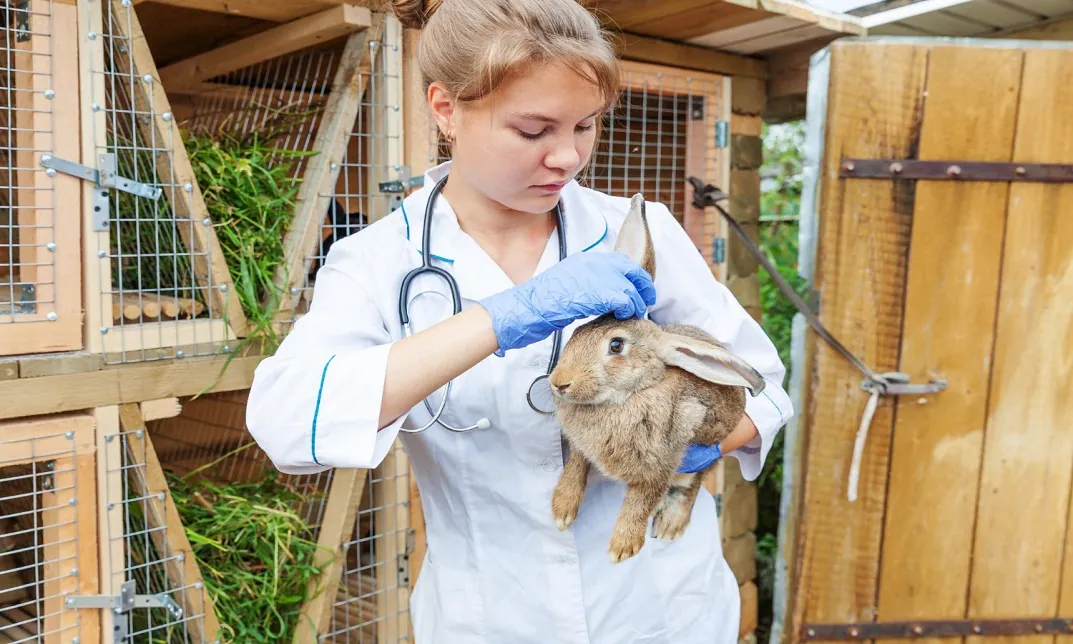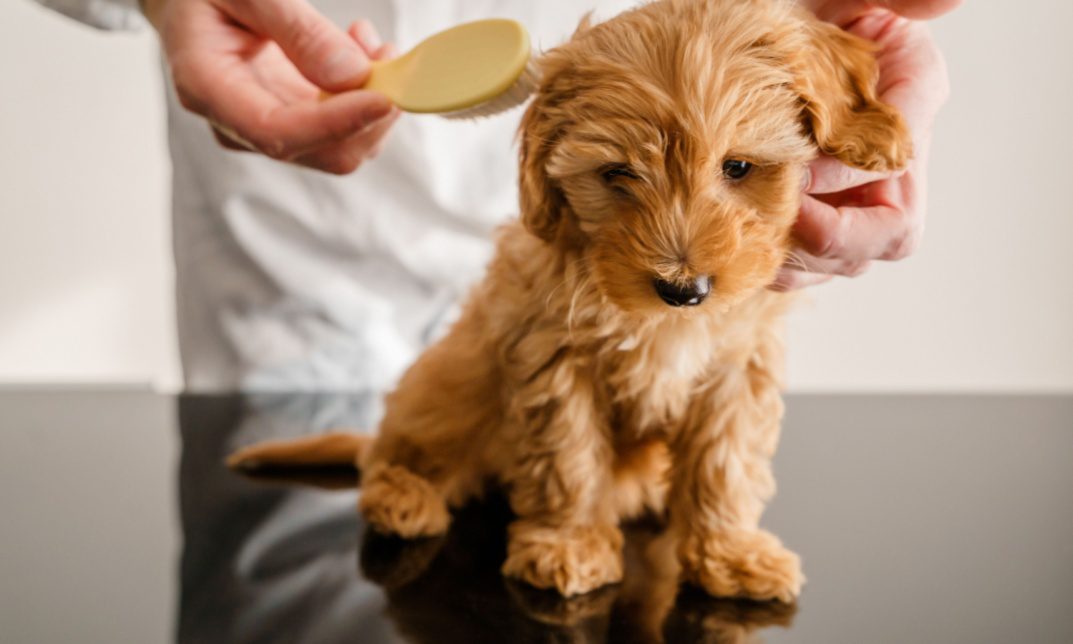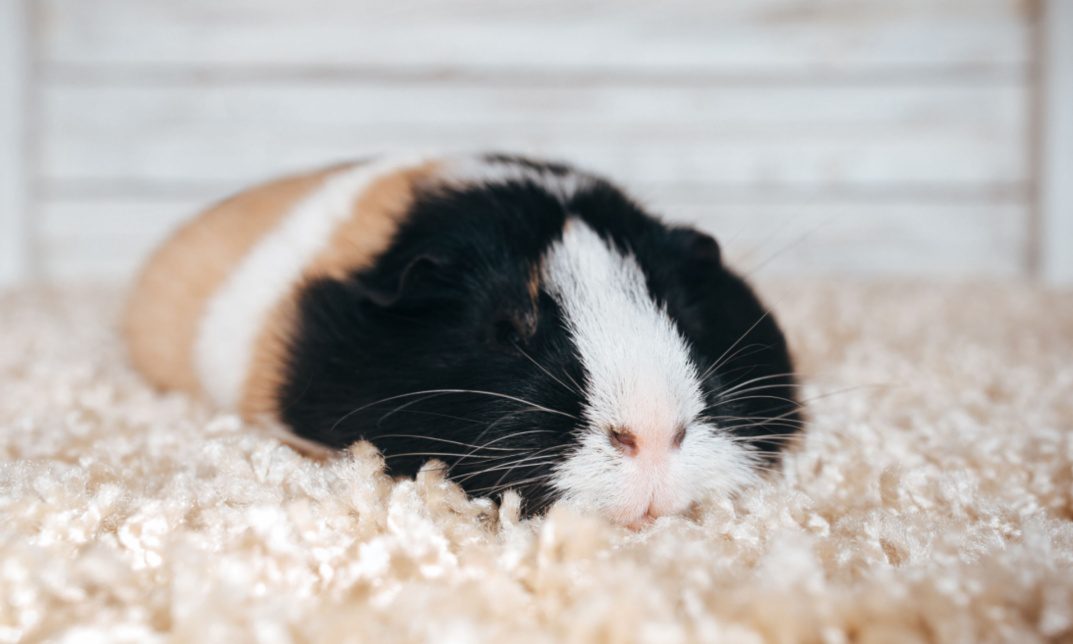If you love spoiling your rabbit with treats, you’ve probably thought about sharing your favourite snacks with them. But, when it comes to fruits like grapes, it’s essential to know if they’re suitable. So, can rabbits eat grapes safely, or could they cause harm? Therefore, this blog will cover everything you need to know before serving them grapes.
Are Grapes Safe for Rabbits?
In short, yes, rabbits can eat grapes. However, like many treats, grapes should only be given in moderation. Grapes are not toxic to bunnies, but they are high in sugar, which can cause digestive issues if eaten in large quantities. Thus, it’s important to only give your rabbit small amounts of grapes, ensuring it doesn’t become a regular part of their diet. The sugary nature of grapes can lead to obesity and other health issues over time.
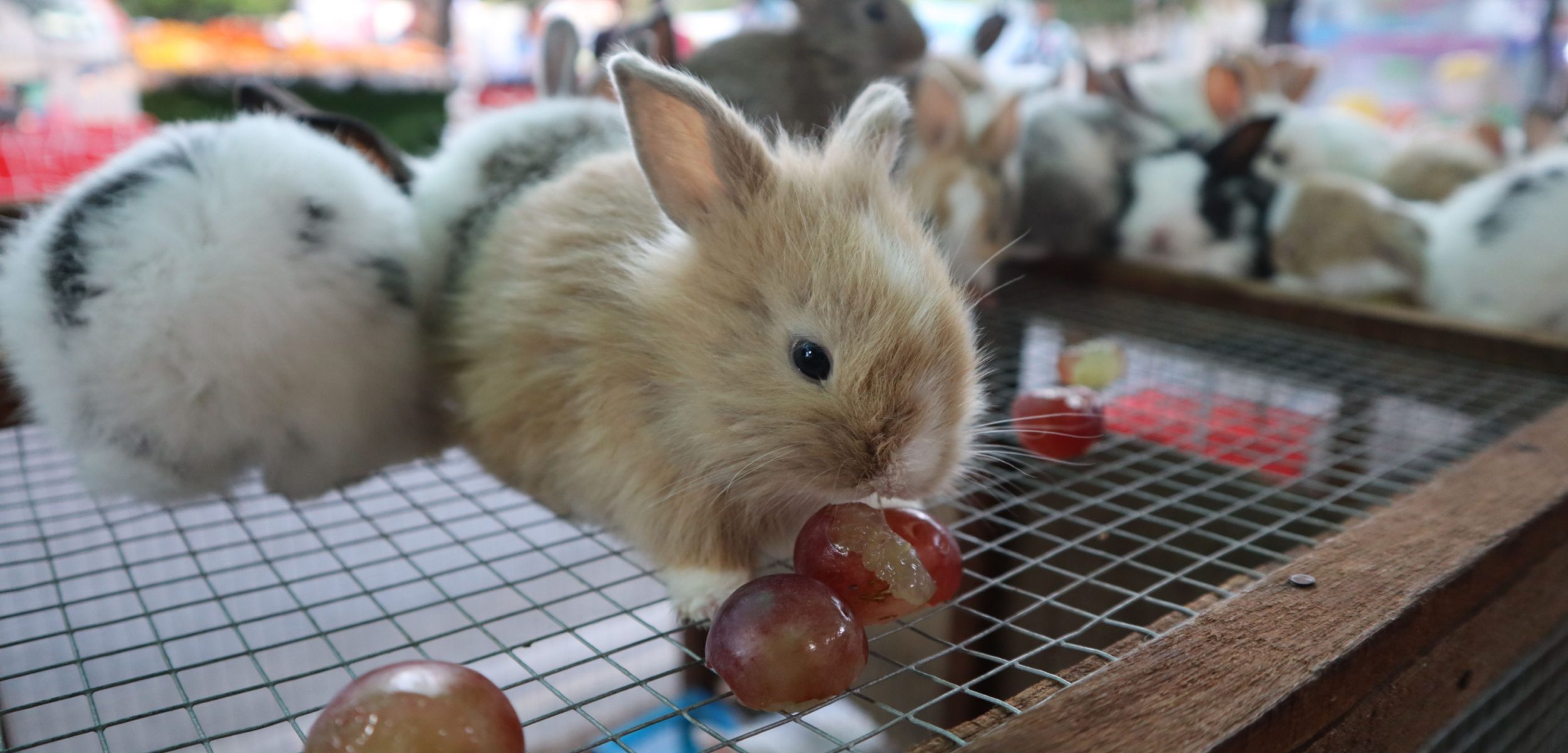
Moreover, grapes lack many of the essential nutrients that rabbits need to stay healthy, such as fibre. They rely heavily on fibrous food to keep their digestive systems running smoothly. Therefore, while rabbits can eat grapes, it should not replace their usual diet of hay, fresh vegetables, and pellets.
Benefits of Grapes for Rabbits
Despite the potential risks, there are some benefits to feeding grapes to your rabbit in small amounts.
- Hydration: Grapes have a high water content, which can help keep your rabbit hydrated. If your rabbit doesn’t seem to drink enough water, offering a small grape might help.
- Vitamins: Grapes contain some vitamins, like Vitamin C, which can be beneficial for rabbits. However, as compared to other fruits and vegetables, the amount of these vitamins is minimal.
- Mental Stimulation: Offering grapes as an occasional treat can provide mental stimulation for your rabbit. Grapes, with their small size and sweetness, can be a fun snack for your rabbit to nibble on during playtime.
However, these benefits don’t outweigh the risks if grapes are given too often. Therefore, moderation is key to ensuring that your rabbit stays healthy.
Risks of Feeding Grapes to Rabbits
While rabbits can eat grapes, there are some risks that come with giving them too many. As a result, it’s essential to understand what could go wrong if grapes become too frequent a treat. So, here are some of the following:
- High Sugar Content: Grapes are naturally high in sugar. For rabbits, a high-sugar diet can lead to digestive issues, such as diarrhoea, and can also increase the risk of obesity. They have a sensitive digestive system, and too much sugar can upset the balance of bacteria in their gut.
- Obesity: Regular consumption of sugary treats like grapes can cause rabbits to gain weight. Over time, this can lead to obesity, which can affect their mobility and overall health.
- Dental Issues: Sugary foods can also contribute to dental problems. Rabbits’ teeth grow continuously, and they rely on chewing fibrous foods like hay to wear them down. Eating too many sugary treats like grapes can lead to tooth decay and other dental issues.
- Addiction to Sweet Foods: Like humans, rabbits can develop a taste for sweet foods. If you give them too many grapes, they might start to refuse their regular food, which is necessary for their health. Therefore, while they can eat grapes, it’s important not to make them a staple of your rabbit’s diet.
How to Safely Feed Grapes to Your Rabbit
If you decide to feed grapes to your rabbit, there are several measures you should follow to ensure their safety. Some of the following include:
Offer Only Small Portions
Start by giving your rabbit a small piece of grape, no more than one or two per week. This is enough for them to enjoy the sweet taste without overloading on sugar. If your rabbit is new to grapes, give them a tiny amount at first to ensure they don’t have an adverse reaction.
Cut Grapes into Small Pieces
It’s a good idea to cut grapes into smaller pieces to prevent choking. Although bunnies are good at chewing, smaller pieces are easier to manage. This also helps you control the portion size, making it easier to give your rabbit the right amount.
Remove Seeds
If the grapes you are feeding your rabbit have seeds, be sure to remove them. While most commercial grapes are seedless, some varieties do contain seeds, which can pose a choking hazard for your rabbit. Thus, always double-check before offering grapes to your rabbit.
Wash Thoroughly
Before giving grapes to your rabbit, wash them thoroughly to remove any pesticides or chemicals. Even organic grapes should be washed to ensure they’re as clean as possible.
Mix with Other Healthy Foods
You could offer grapes as part of a more balanced treat. Try mixing small pieces of grape with healthier rabbit-friendly vegetables, like leafy greens, to ensure your rabbit still gets the fibre and nutrients they need. This can help limit the amount of sugar while still allowing your rabbit to enjoy their treat.
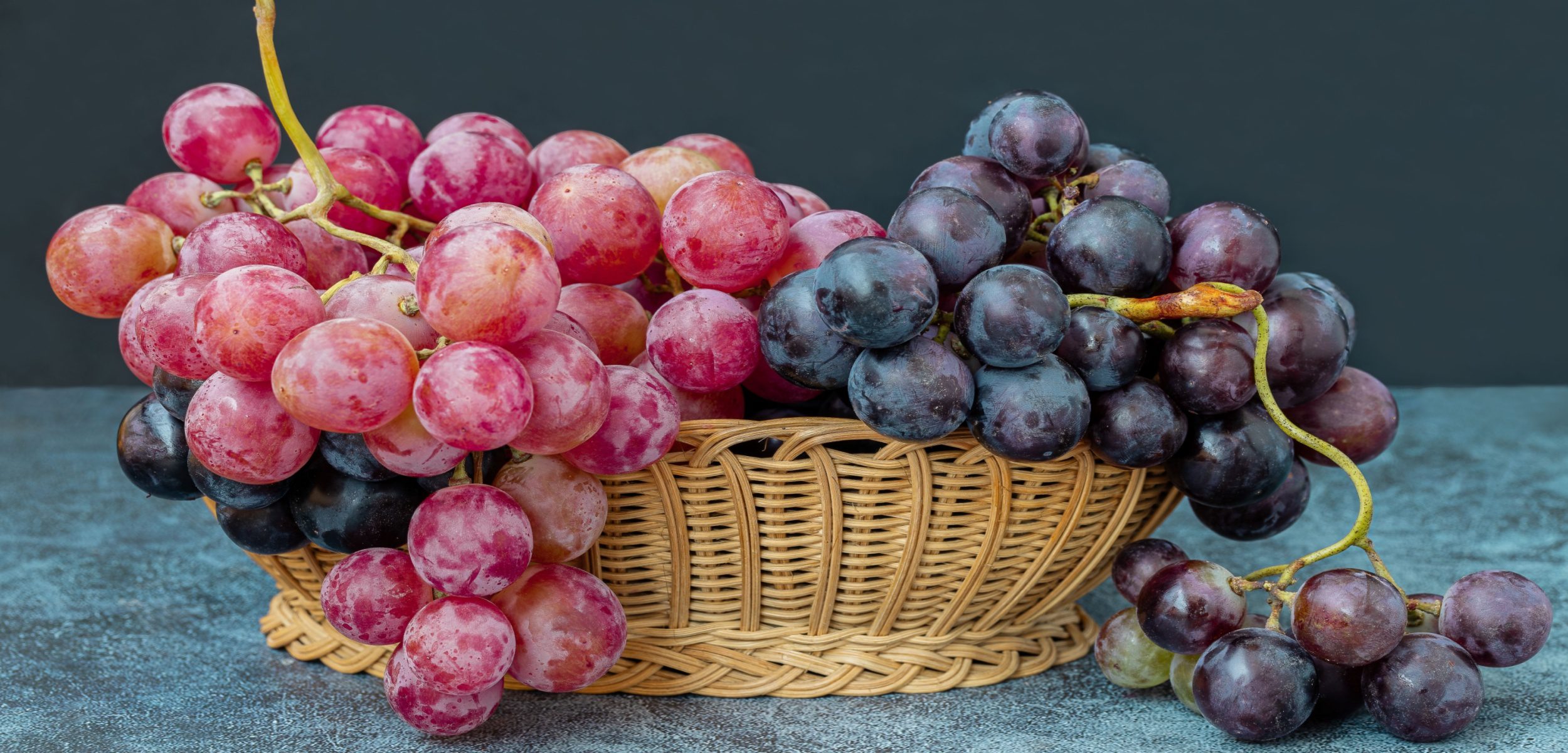
List of Other Safe Fruits for Rabbits
While grapes are safe for bunnies, they’re not the only fruit you can offer. Here are some other rabbit-friendly fruits that can be given in moderation:
- Apples (without seeds): A crunchy and fibrous fruit that rabbits can enjoy.
- Bananas: Another sweet treat that rabbits love, but should only be offered in small amounts due to the high sugar content.
- Blueberries: Packed with antioxidants, but still sugary, so give sparingly.
- Strawberries: A fresh and tasty fruit, but the leaves are also safe for rabbits to eat.
- Pears (without seeds): Soft and juicy, pears are another good choice, but like grapes, they’re high in sugar.
These fruits should be considered occasional treats rather than staples of your rabbit’s diet. Always ensure that fresh hay and vegetables make up the bulk of your rabbit’s food.
Conclusion
So, can rabbits eat grapes? Yes, but with caution. While grapes are safe for rabbits, they should only be given occasionally and in small amounts due to their high sugar content. Grapes can provide hydration, some vitamins, and mental stimulation, but the risks of overfeeding, such as digestive problems, obesity, and dental issues, are real. You can ensure your rabbit stays healthy and happy by offering grapes responsibly, alongside a diet rich in hay, fresh vegetables, and pellets.
If you ever have concerns about your rabbit’s diet, you can enrol in a Rabbit Care Training Course from the Unified Course to make sure you’re providing the best care possible. After all, your rabbit relies on you to keep them healthy.
